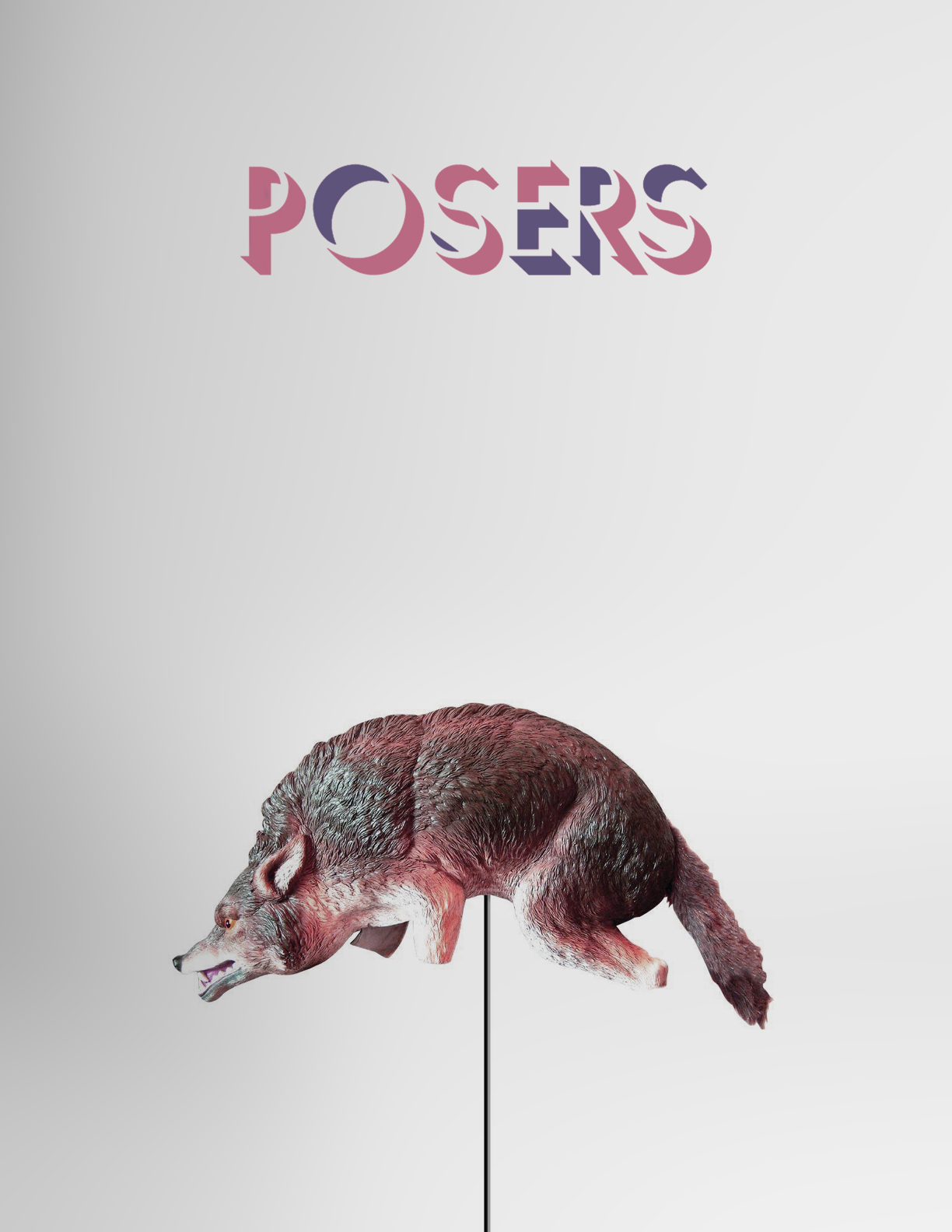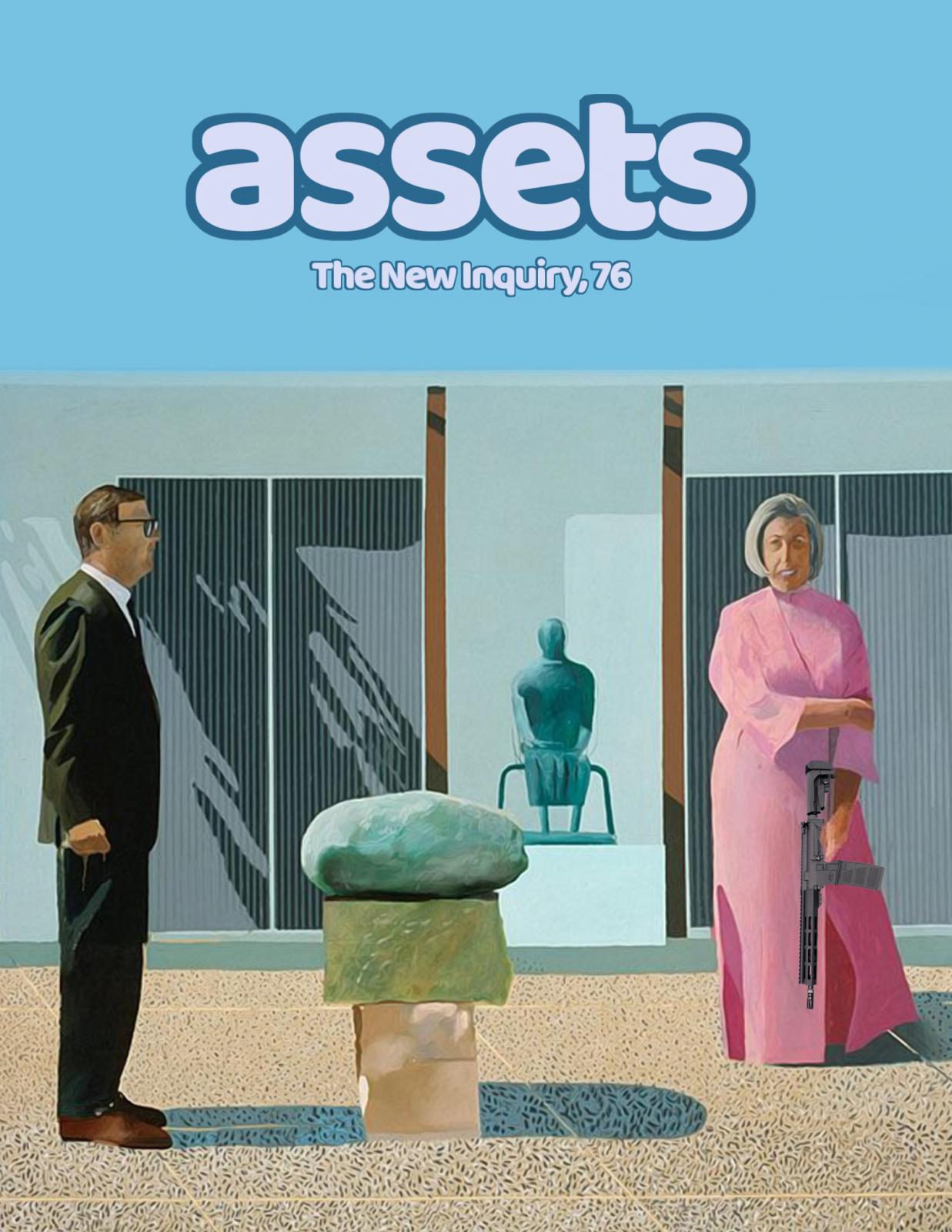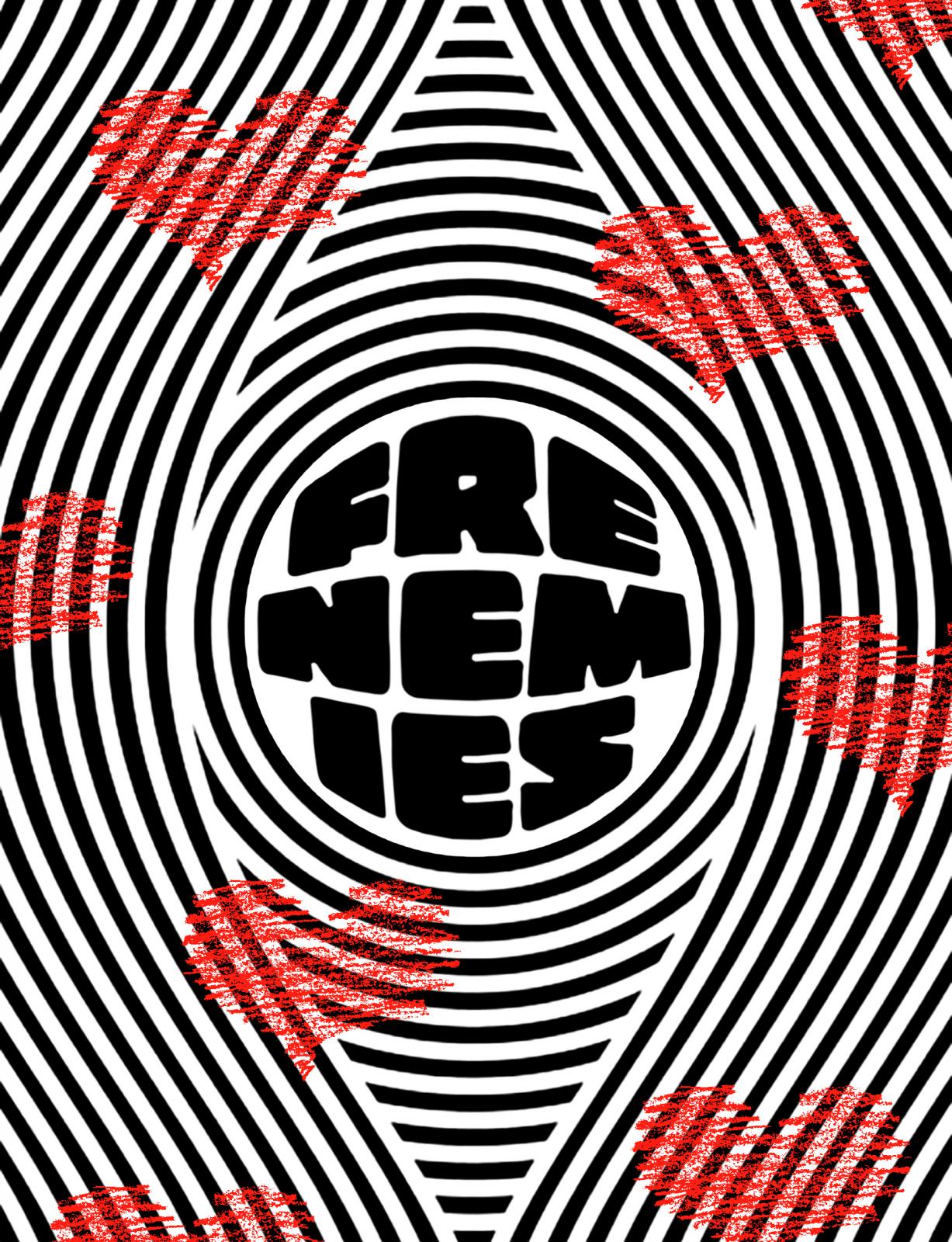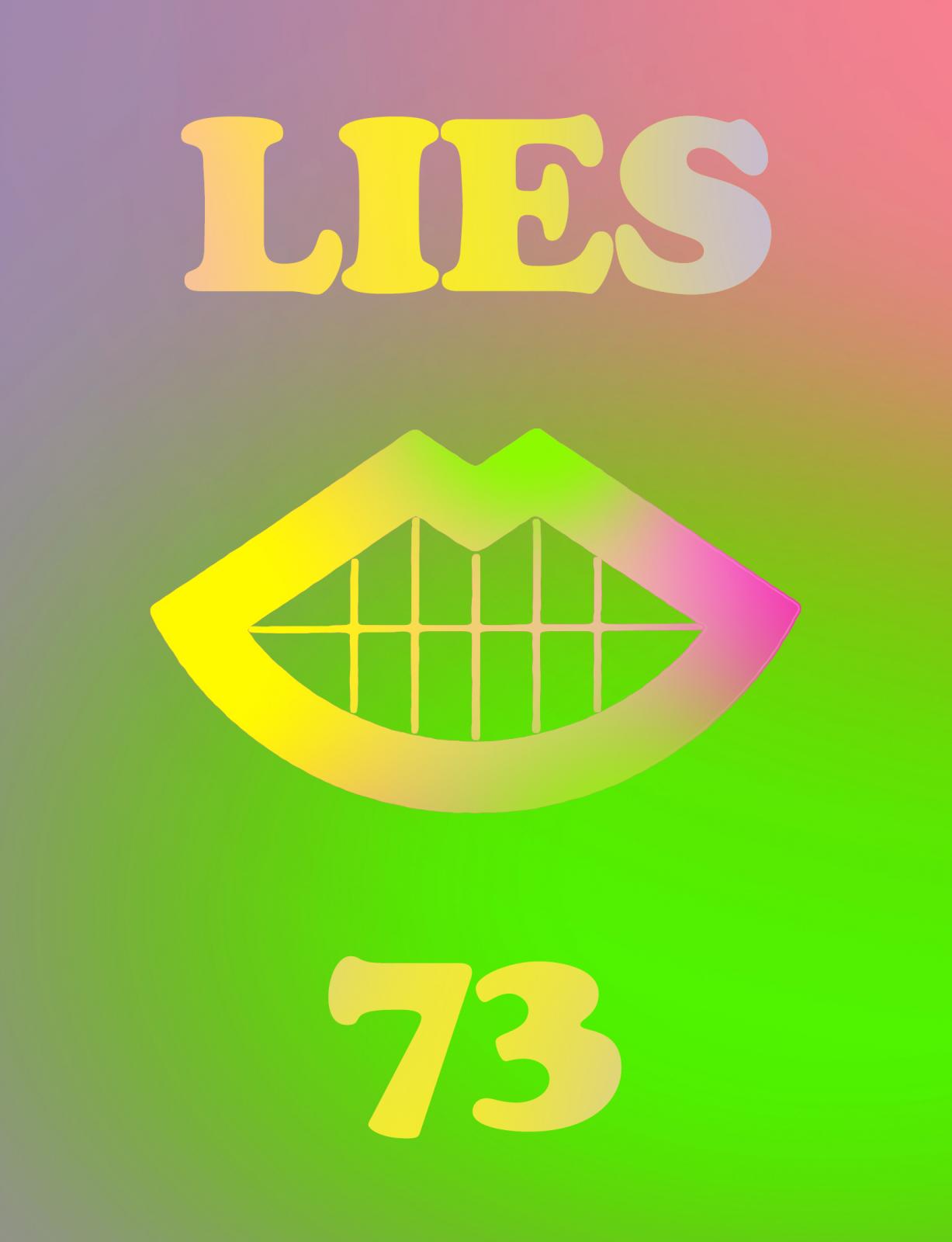Posers
Editors' Note
Advertisements for MyHeritageDna have been cropping up lately in subway cars across New York City. Most of the ads feature white people proclaiming that they are, in fact, more than just boring white people. “I am 11.7% Native American,” explains the text next to one man’s pale face; “I am 7.6% West African,” says another. The rejoinder? “You’re more than what meets the eye.”
These kinds of tests have always been most appealing to people who don’t consider themselves racialized. Laying claim to an identity that bears no real meaning on one’s life except as a social factoid is a classic poser move, since those who pose successfully often have the social or cultural capital to pull it off without being questioned.
Those of us without powers to pass or dissemble, on the other hand, must live through actual struggles to become the "real deal." But our disdain for posers often obscures the real structures that go into forging what we might perceive to be more “authentic” selves. We admire the scars that mark a person as legit, but pay less attention to the trauma that comes with them. Meanwhile, the convincing poser gets the same glory while incurring little to no pain. Isn’t that the dream?
In Posers, our contributors explore the complexities of power and performance in everyday life. “SIMPARTY” by Fei Liu, Dan Taeyoung and Francis Tseng generates two parallel parties—a “real” party, which TNI will host in NYC, and its digital counterpart. At the IRL party, avatars of the “real” partygoers, who have completed psychometric profiles prior to attending, play on the screen, ambling through our programmed responses, canned observations, and embarrassing flirtations. “This avatar acts as a social canary,” the game’s authors explain, “stumbling through faux pas and taboos so you don’t have to.”
But as Carmen Petaccio points out, our collective present is not a simulation, despite the recent liberal fetish of the “simulation hypothesis” (which argues we’re all living in an advanced computer simulation created by aliens). Following the election of Donald Trump, Petaccio writes, smug technocrats and sad old literary men alike, from Elon Musk to the New Yorker’s Adam Gopnik, seemed willing to question everything except for the insufficiency of liberalism itself. “It is easier for the greatest minds in our society to imagine extraterrestrials developing this material world as a game,” he writes, “than any substantive change to the status quo.”
Then there are those great minds for whom the election presented a welcome stage for unadulterated handwringing, apologetics, and guilt. In “Centuries of Sorry,” Benjamin Krusling examines the optics of the public apology broadly and how “it is used to reify State power, white supremacy, and other oppressive forces in the public sphere.” But what if “public life doesn’t have to be so sorry so often, so managed and emptied of meaning”?
Drawing from personal experience canvassing for Hillary Clinton, Mir writes about “Muslims for Hillary” and how 2016 signaled a shift in the Democratic Party’s strategy to use Muslims as instruments. As Mir suggests, “There is a spectrum of tropes available to Asian American and Muslim immigrants who want to participate in American electoral politics if we’re willing to adopt them, but all are hazardous.” Can we stop posing for the camera at the command of the parties, and instead pose as a threat to the parties themselves?
In “Getting In,” Lavelle Porter looks at the problems that come with inclusion into another kind of establishment by exploring the racial politics of literary awards. Writing about the recent reissue of Samuel Delany’s 2007 novel Dark Reflections, Porter argues that literary awards are a site for policing black cultural production. “For many people, these black artists, on that stage, and on that list, are interlopers in a place where they are not supposed to be.” Despite narratives of black progress in the thick of white supremacy, the black intellectual imagines a world beyond the legible form of validation that awards provide.
Where some think that intruders need policing, we might say that the police also need intrusions. For Nijah Cunningham and Tiana Reid, blue is the coldest color. They question the so-called social movement known as “Blue Lives Matter” that concocts a mythical enemy—the cop killer—and demands that it be destroyed. In keeping with the theme of appropriation that uplifts true poserdom, cops and their fans mimic the outrage and sorrow of those who mourn black life taken by the police state. By using state and extralegal power to reinforce narratives of victimhood, the police attempt to give flesh to an impossible subject: blue life.
As the police might pretend to be vulnerable, the carceral state in Maine portrays itself as virtuous through rebranding modern day slavery. In “Hidden Costs,” Chelsea Hogue explores how the products of prison labor get repackaged to complacent tourists as artisanal, even “homemade” kitsch—kitchen tools, Adirondack chairs, bear paw candy dishes, lobster key chains, and picture frames. She asks “what happens when the work is disguised as creative catharsis, the method by which the incarcerated will be rehabilitated, the key to recovery?”
The creativity and fungibility of state power knows no limits. As Jack Gross suggests, maybe we shouldn’t pretend to be so surprised by “the repetition and refraction of strategies of white supremacist domination across time and continents.” Reviewing James Q. Whitman’s Hitler’s American Model: The United States and the Making of Nazi Race Law, Gross explores how the Nazis used anti-miscegenation statutes in the American South as a source text for their white supremacist polices.
Bad medicine is hardly a thing of the past. In present-day America, through the use of test subjects to control and alter human populations, the medical establishment coercively manages our desires, fantasies, and bodies. In “Blue Dream,” Marcos Santiago Gonsalez explores how PrEP, that little blue pill also known as Truvada, allows gay men of color to feel cared for but also managed, commodified, and converted into data, cleansing queer life of its deviants from past, present and future.
How might we rethink our desires? Or, rather, how might we disentangle the desire for power from its instantiation? Charlotte Shane, in a review of The Sum of Small Things, examines the symbolic life of class. While entrenched myths of class drag suggest we can pose by dressing up or down, only the elite are free to indulge their habits to the fullest. “Real advantage lies in the purchase of life-prolonging premium health care, private education from pre-school onward, the use of others’ intimate labor (primarily childcare and housework) to free one’s own time and energy for making more money—and, of course, political favor and direct influence,” writes Shane. Aspiration is not a substitute for material wealth.
Poet-mom Montana Ray sheds light on how circumscription can allow one to take pleasure from everyday social performance in her interview with editor Tiana Reid. They talk about sexism in the poetry scene, the tediousness of professionalism, radical self-consciousness, and self-consciousness about being radical. And in her latest advice column, Marooned Alien Princess Zahira Kelly addresses questions about the violence of cultural appropriation and the exhaustion of code-switching.
The poser is a late 20th century phenomenon, as punks and other outcasts relied on the concept of poserdom to screen potential members of their cliques. Within these subcultures, a hierarchy existed to determine who was in and who was out. We offer an updated understanding of poserdom that retains this authoritarian arrangement but centers the poser, and not the authentic kids, as the true locus of power. It’s easier to clarify who gets to pose without enduring the social consequences; this helps us tighten our sights on the hierarchy we wish to destroy.
Featuring
-
Editors’ Note, Vol. 62: Posers
-
The American Model
-
This is Not a Simulation
-
Can the Subaltern Vote?
-
Centuries in Sorry
-
Blue Life
-
Mom-Poet
-
SIMPARTY
-
Top or Bottom: How do we desire?
-
So You Think You’ve Got Class?
-
Getting In
-
Hidden Costs
-
Blue Dream
-
Dear Marooned Alien Princess





